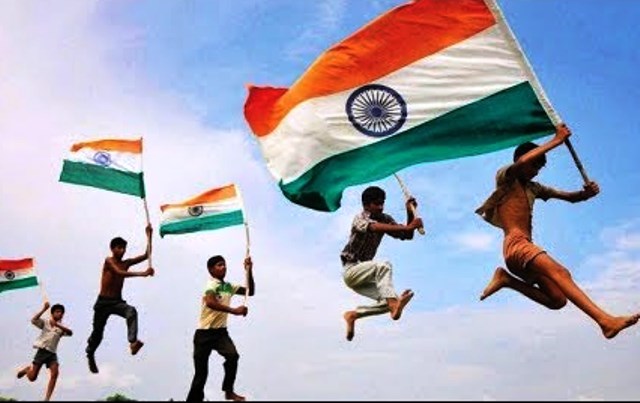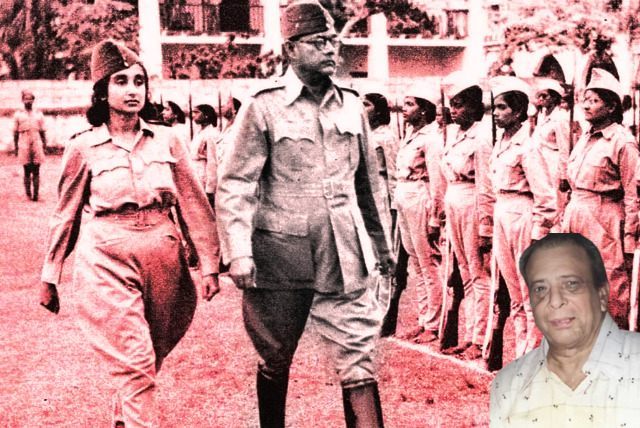
Tiranga Nationalism, In The Shadow Of Islam, Hobbes & French Revolution
Celebrating the 75th year of the departure of the British from South Asia and end of imperial colonization, the BJP Government gave a clarion call to Indians to put up the national flag on their homes to celebrate independence of the ‘nation’. Even the RSS, that once refused to fly the Tiranga, flew it with pride at Nagpur. However, the flag waving did not find universal enthusiasm within India.
The RSS and BJP have pushed considerable State money and resources to rewrite the history of South Asia, track its Hindu ancestry and frame the rationale of modern Hindu nation based on a pedigree of Hindu ‘civilization’ calling it Hindu Rashtra. It sees this as the uniting thematic identity for India. There are many paradoxes given India’s known history of over 5000 years.
For a start the idea of nation in South Asia did not exist in pre-colonial times. Rashtra is State or governance and not a nation. Secondly the idea of religion and particularly Hindu religion did not exist before the rule of Islam in India. Dharma and religion are not the same. Thirdly there is no unifying identity in India except in the mind and institution of the babus (civil servants) of India and centralist political parties unable to cope with diversity after the architects of modern India, the British left.
Why a region that traditionally treated rulers like hired administrators with both the ruler and the communities knowing their boundaries of coexistence treats the brief interlude of British rule as the greatest seminal period in history of South Asian civilization, remains intriguing. There is no day of ‘independence’ from Mughal rule.
It seems 15th August 1947 is important not because the people of South Asia became ‘independent’ but because India, as a country in the western image, was nurtured and finally released from its maternal womb by the British. To rewrite the wisdoms of the Vedas and Shastras and the great epics of Ramayana and Mahabharata as intellectual seeds of Indian nation is fabrication and a debasing of the depth of those ancient texts. Why celebrate the day when mother (Britain) gave birth (to India) instead of when the first Kingdom of Bharat was established 5 or 6 millennia ago?
The idea of the ‘nation’ is essentially European in origin and in fact its modern genesis is the French Revolution. After the fall of the Monarchy in France, the State then governed by the people needed a unifying idea. The concept of a nation, built on a common language, culture, ideology and egalitarianism took form. The French ‘nation’ went about decimating the languages and cultures of the different communities within the French territory. It is telling that even in the modern world of multiculturalism, France does not have the institutional flexibility to accommodate different communities without forcing them to compromise their identities and cultures to a great extent. In emulating the French idea of nation, India too seems to be moving along that route, derogating from its civilization’s pluralistic inheritance.
France however did not pretend that the ‘nation’ has an ancestry going back to pre-Roman period. France has a theory, an ideology and a narrative that it unapologetically says started with the revolution in 1749.
Other European States also emulated France as Monarchies fell apart. Some imagined themselves as nations, some constructed the ‘nation’. Britain and Switzerland are among the few States that didn’t quite succumb to the fever of ‘imagining the nation’.
The ‘nation’ as an idea was exported by colonialism to rest of world. As regions became decolonized they began constructing the narrative of the ‘nation’ to keep the people within the colonial demarcated territorial boundaries committed to the ‘independent’ State. Across Africa and Asia the process of creatively interpreting history and constructing the nation as a single continuum for thousands of years became academically industrialised often based on the history and culture of the dominant ethnic community.
ALSO READ: 1947 And 2021 – Two Exits In Perspective
But they also ‘celebrate’ birth from the colonial mother, calling it independence, although still retaining umbilical relations through institutions such as the Commonwealth. All the siblings meet yearly. The ignominy is a parody.
Imagining the ‘nation’ as a common glue is also what India has been trying desperately since 1947. The difficulty is that it has 22 officially recognized languages, many distinct and regional communities with little in common and without a pre-colonial history of a territorial integrity that was established by the British as an administrative unit.
India is a State of many nations, dharmic panths and religions. Like other post-colonial States, India too has been trying hard to imagine itself as a nation in the French way. Congress party tried to create a secular nation to accommodate its vast diversity. Both the nation and secularism is European with no roots in South Asian civilization. That didn’t stop some of India’s leading academics to reconstruct a pedigree for secularism in India’s long history calling it ‘Indian secularism’ although no previous political philosophy resembling Indian secularism exists. All of it developed on the hoof as Congress tried to culturally engineer South Asian civilization to a European one but met challenges.
The RSS, the organization that is the base of the BJP, was averse to the idea of secular nation as it seemed ‘too European’ and ‘foreign’. It set about recreating a unifying idea of a nation based on Hindu culture, religion and civilization. Its fantasy narrative is called Hindutva.
There has never been a concept of ‘religion’ in India as in Abrahamic sense of religion. There is no one unifying God or belief. In fact the word Hindu has no genealogy in Vedas or Shastras. It is an exonym popularised by Muslim invaders. It was sealed as a religion by British colonialism.
The word ‘Hindu’ stuck and has become a subject of academic contortions to give it relevance as a nation and religion. South Asia has dharmic panths, a fundamentally different concept than religion. They are exploratory and have had thousands of years of history of coexisting as well as accommodating new ideologies without attempting to universalize any one idea or path. But people who call themselves Hindus have internalized the narrative, nomenclature and ideology handed by Muslim invaders and then the British. Mimicking Islam, the people of South Asia also started to imagine a common deity and prophets.
It is an irony that while RSS-BJP has been criticizing Congress of trying to westernize ‘Indian’ civilization, it has itself completely consolidated ‘semitisation’ of Indian civilization and Frenchifying the ‘Rashtra’. The irony is lost on them as they earnestly go about reinventing and dumbing down the great, plural and rich civilization of South Asia.
There is a tragedy in all this. The South Asian civilization had extraordinary depth and a plural philosophy as its foundation. It was based on the syncretic evolved philosophies of its various communities, postulated in the Rig Veda and the indigenous non-Vedic belief systems. The State or States in South Asia had taken many territorial forms but remained plural in essence without the need to unify it as the French did to France. The Mauryan Dynasty is an example.
India could have provided a way forward to the most complex contradiction of the modern multicultural and multiracial State, particularly of the post-colonial States, in their attempt to seek ‘unity’. India could have developed the ideology of pluralism fit for the modern State.
As it is, neither the Congress not the BJP quite grasped that the Nation and the State are different entities. The Nation-State is a French political philosophical idea. To anchor it even more firmly in European civilization, modern India has adopted the idea of the Hobbesian State with the rulers enjoying coercive power over the people. That too is neither Vedic nor indigenous. Both Congress and BJP have infantilized the intellectual depths of South Asian civilizations in this endeavour.
Tiranga nationalism therefore is not a representation of a continuum from thousands of years but a child of Islamic and colonial rule, however much it is cloaked in Hindi and Sanskrit language.
Perhaps the ancient civilization has nothing to offer the modern Indian State and India is dependent on the genius of western philosophers now and for foreseeable future. That may be the vacuity at the heart of the Indian State that necessitates confabulating the Indian ‘nation’. As it is, modern India has little if anything to offer to the history of contemporary ideas. But a South Asian genius may still emerge. First it needs critical enquiry in the best tradition of ancient traditions of Nyaya Sutra, Samvada and Jalpa most of which are discouraged by Tiranga Nationalism.



